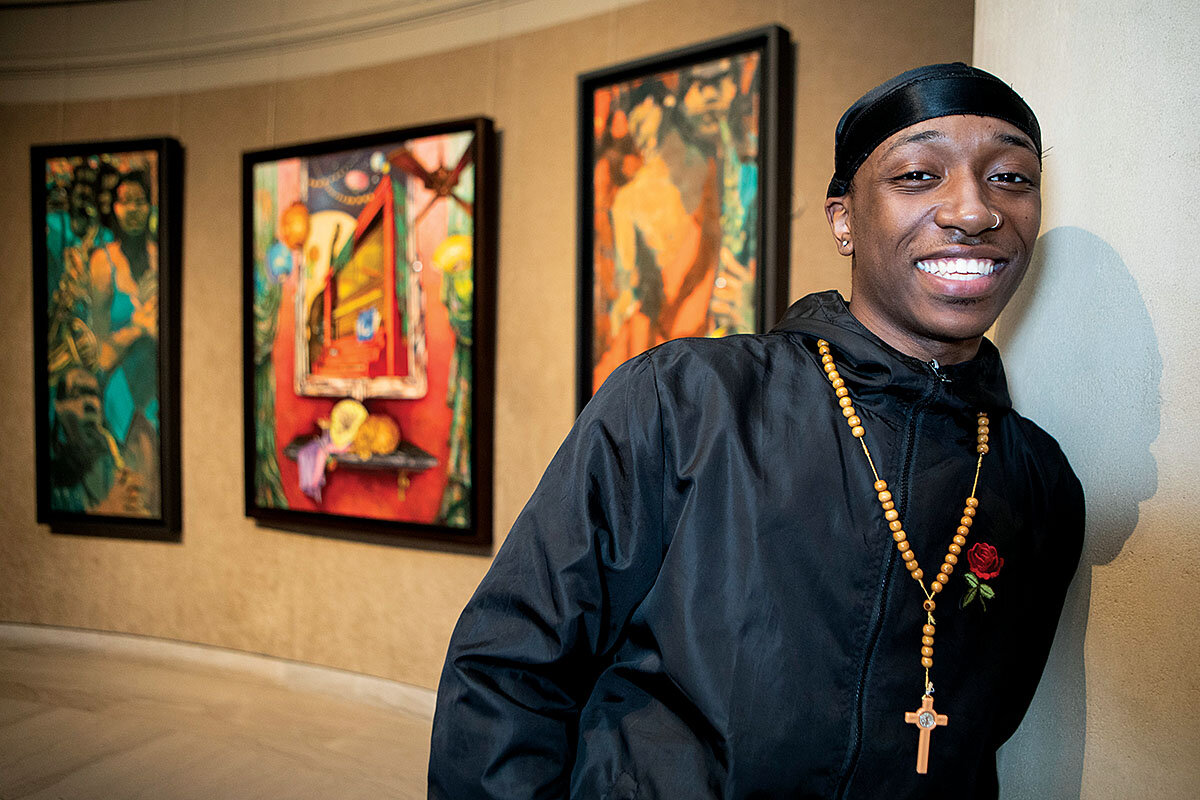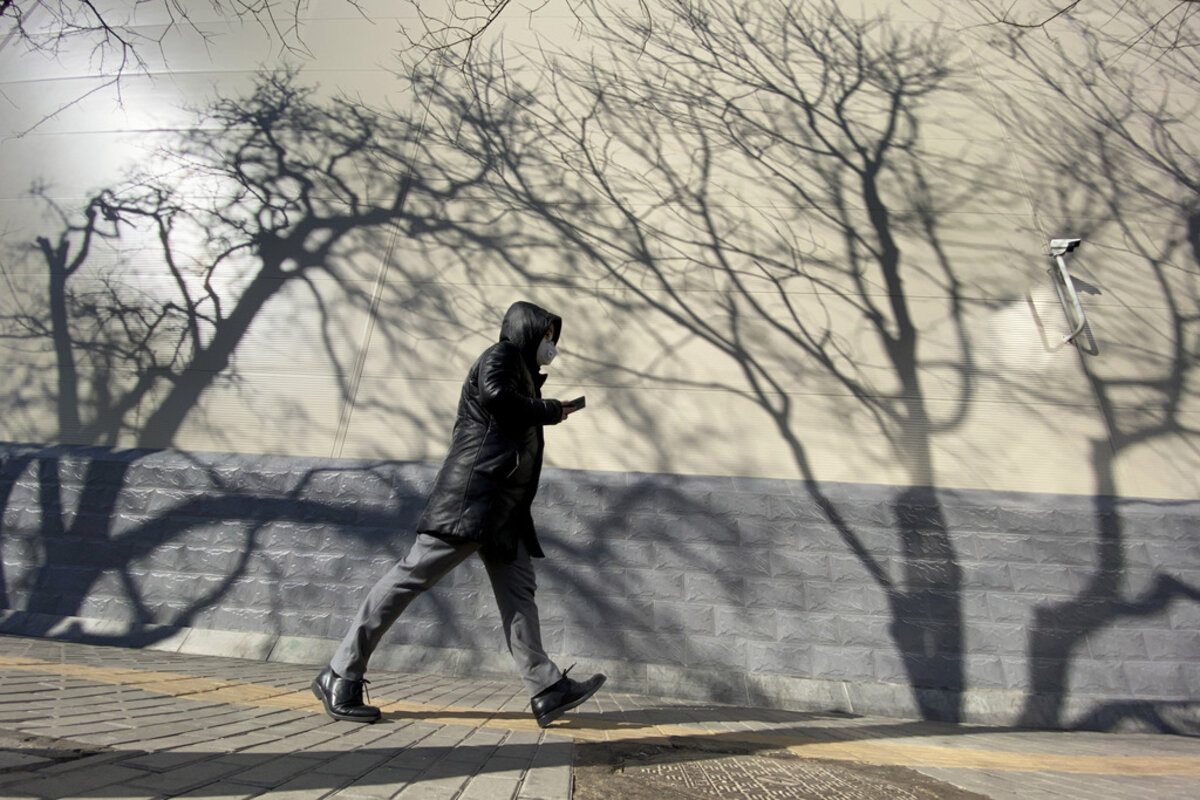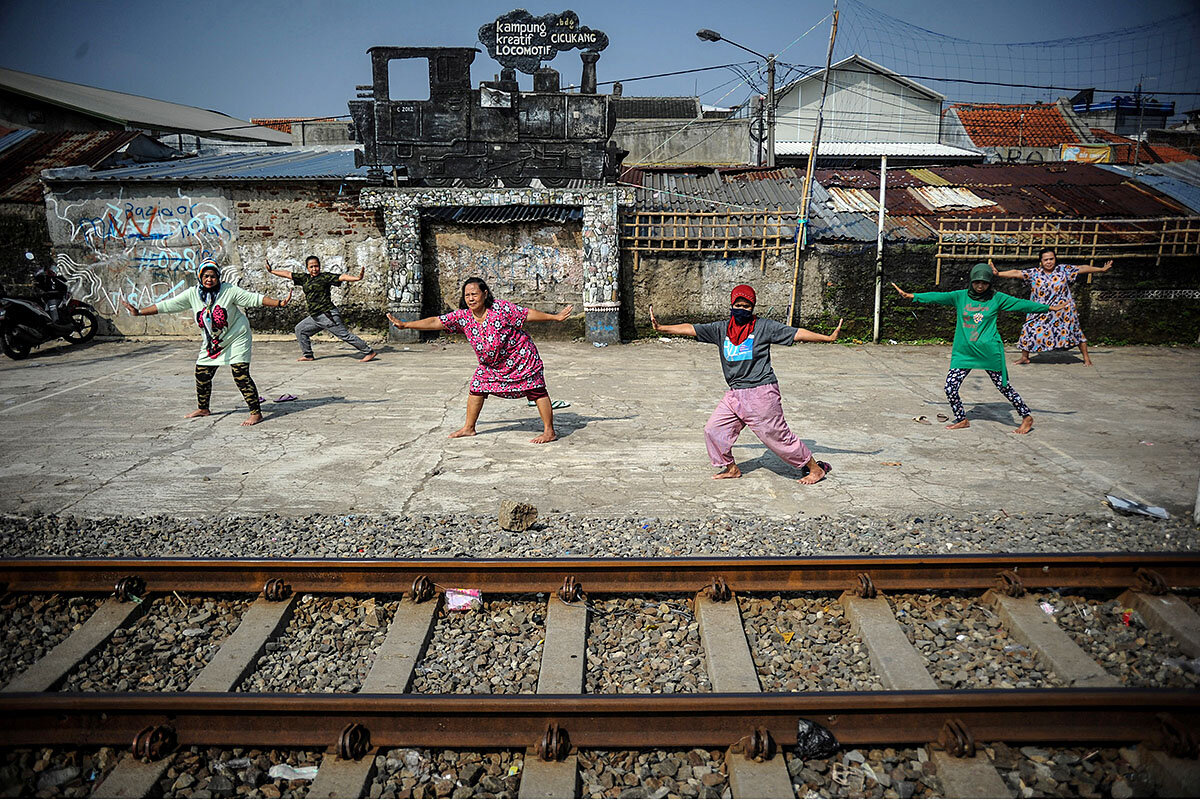So what are the challenges to global solidarity? Ned Temko looks at how the virus is testing the architecture of alliances and partnerships from Europe to China.
Monitor Daily Podcast
- Follow us:
 Mark Sappenfield
Mark Sappenfield
Today’s issue looks at coronavirus and the global order, Trump supporters’ views of the crisis, a volunteer spirit in France’s poorest areas, the Arab world’s dreamy “Dr. Fauci,” and museums turning kids into curators.
Here is a fact about the coronavirus pandemic: It follows a pattern of pandemics becoming rarer and causing fewer deaths.
Since the emergence of COVID-19 in China, much has been written about how it has traced the lines of commerce, using globalization to spread. But it is equally true that our global interconnection is also perhaps the most potent weapon we have against viruses.
“This is because the best defense humans have against pathogens is not isolation – it is information,” writes author Yuval Noah Harari .
Centuries ago, the bubonic plague and smallpox killed a quarter of the populations of Europe and Central America, respectively. Even in 1918, the flu killed as many as 50 million people. Since then, however, outbreaks have been defeated by cooperation and global solidarity. Our Ned Temko writes about the stresses on those connections in today’s issue.
In that way, the coronavirus is bringing something deeper to the surface. “Today humanity faces an acute crisis not only due to the coronavirus, but also due to the lack of trust between humans,” writes Mr. Harari.
Ironically, the best defense we have against the coronavirus is one another and the knowledge we share.










